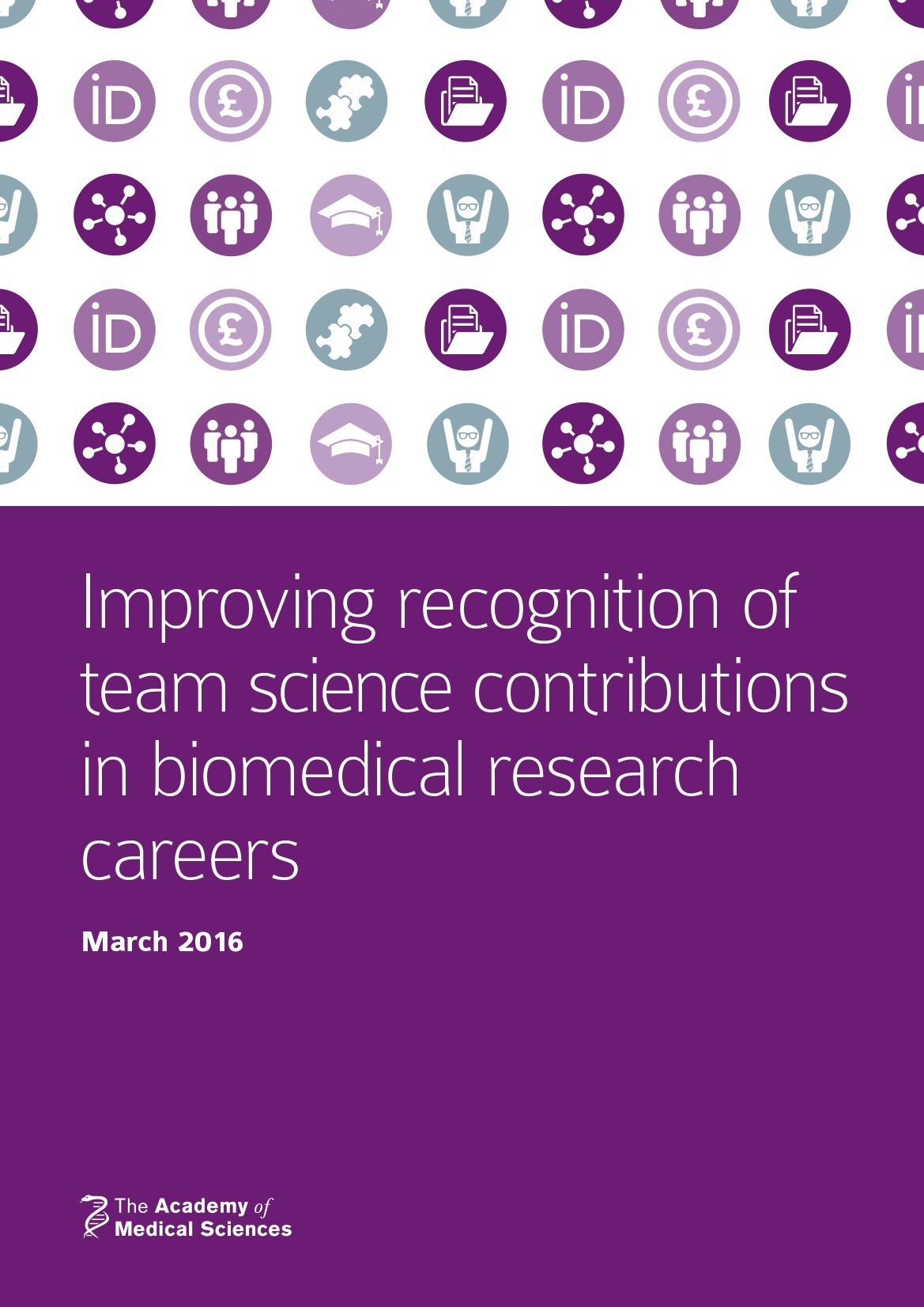Universities, funders and publishers of research do not adequately value the contributions of individuals who participate in “team science”, particularly those at the early stages of their research careers, according to a new report from the Academy of Medical Sciences.
As Team Science becomes more common, this lack of credit, if not addressed, could lead talented people to drop out of science, abandon research or avoid participating in large collaborative projects.
Team science, or collaborative and multidisciplinary research, is increasingly at the heart of biomedical discoveries and breakthroughs. It is essential to tackle global issues which require the contribution of different disciplines and researchers with different skills, often from more than one country.
However, the Academy's project Improving recognition of team science contributions in biomedical research careers finds that researchers are frequently not encouraged, supported and rewarded appropriately for participating in team-based research efforts.
The report is the first to investigate the issue from a career development perspective, and finds that there are few incentives for researchers to take part in team science as there isn't an appropriate system to assign credit for team contributions.
Professor Anne Ridley FMedSci, Chair of the working group said:
"We need team science to be attractive to talented researchers or it will not develop.
At the moment the track record of researchers is based on whether they have first and last authorships on papers and if they are a Lead or Principal Investigator on grants.
"If we don't find a better way to acknowledge and reward everyone's contributions, great team discoveries may be more difficult to achieve.
"The human genome project would not have been possible without a large team of scientists from different countries and across disciplines working together. But team science is not just about global-scale efforts, it is also about collaborative efforts within universities and across institutes in the same country."
Professor Philippa Saunders FMedSci, member of the working group added:
"We don't want individuals participating in the really exciting bits of research to be lost to science because they are seen as 'just another person on the team' which means their careers are not progressing."
To encourage scientists to take part in collaborative research, the Working Group behind the report recommends several ways to improve how contributions to team science are recognised and rewarded so that they are not disadvantaged compared to the single Principal Investigator standard.
In response to one of the fundamental issues - how to record an individual's contributions - the report suggests researchers, funders and publishers adopt ORCID as the standard identifier for researchers.
Other recommendations touch on the need for more flexible funding schemes, as team science projects have different needs, such as travel and training, and often need longer timescales to produce their results.
The needs of skills specialists (scientists providing a specialist service) should also be included in this contribution system, as they are rarely fully acknowledged for their contributions to research outputs, and a clear career path should be laid out for them to retain their expertise.
The report concludes that researchers should be offered training in team science skills such as management, leadership or conflict resolution, and that these skills should be considered and recognised in grant applications.
Professor Bob Burgoyne FMedSci, a member of the working group added:
“Academic recognition must change and provide better information about the contributions of individual team members.
“There is a need for a structured and uniform way to record information on contributions, a system to record this information needs to be developed and phased in, and it needs to be consistently used by researchers, employers and funders."
A podcast and an animation detailing the rationale behind the team science are also available to share.
